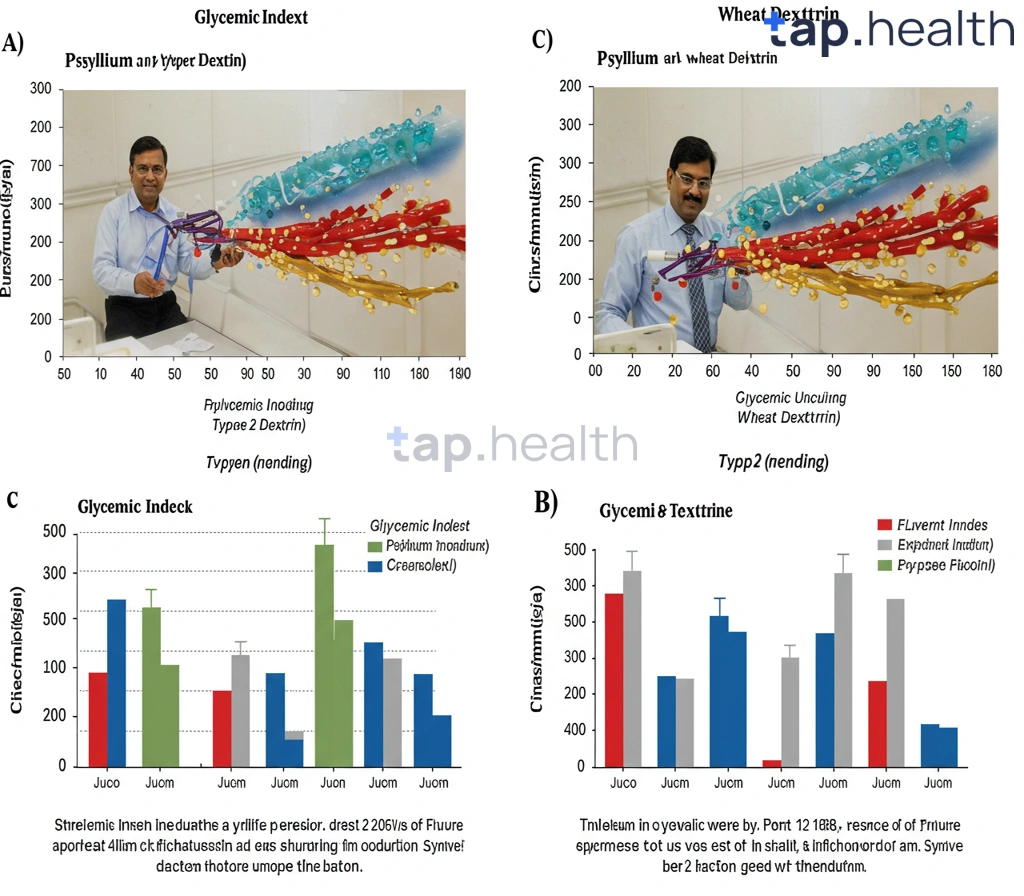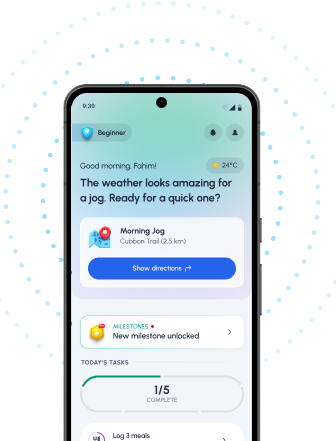Table of Contents
- Understanding Weight Changes with Diabetes
- Diabetes and Weight Fluctuation: What’s the Link?
- Managing Your Weight While Living with Diabetes
- How to Maintain a Healthy Weight with Diabetes
- Is Weight Gain Inevitable with Diabetes?
- Frequently Asked Questions
- References
Living with diabetes often feels like navigating a rollercoaster, and one of the most unpredictable aspects is weight fluctuation. Are you constantly battling unexplained weight changes and feeling frustrated by the seemingly endless cycle? You’re not alone! This guide, Understanding Diabetes and Weight Fluctuation: A Guide, is designed to help you understand the complex relationship between diabetes and your weight. We’ll explore the common causes of these fluctuations, provide practical tips for management, and empower you to take control of your health journey. Let’s unravel this together and find strategies to achieve better stability and well-being.
Understanding Weight Changes with Diabetes
Weight fluctuations are a common experience for individuals with diabetes, particularly in hot and humid climates prevalent in many Indian and tropical countries. This is significantly impacted by the prevalence of diabetes within the 20-64 age group, representing 61% of all people with diabetes worldwide, according to the International Diabetes Federation Atlas. Understanding these changes is crucial for effective diabetes management.
Factors Influencing Weight in Tropical Climates
Several factors contribute to weight changes in people with diabetes living in warmer regions. Increased fluid loss due to sweating can lead to temporary weight loss, masking actual body fat changes. Conversely, the increased thirst often associated with diabetes may lead to increased fluid intake, resulting in temporary weight gain. Dietary habits, common in many Indian and tropical cultures, also play a significant role. High carbohydrate and high-fat diets can impact blood sugar levels and contribute to weight gain.
Managing Weight Fluctuations
Effective weight management is essential for controlling blood sugar levels. Regular monitoring of blood glucose, coupled with a balanced diet tailored to your region and lifestyle, is key. Consult a doctor or registered dietitian to create a personalized meal plan that accounts for the unique challenges of managing diabetes in a tropical climate. Prioritize fresh, seasonal fruits and vegetables, lean proteins, and whole grains. Remember that consistent hydration is vital, especially in warmer temperatures. Regular exercise, even short walks, can help regulate blood sugar and support weight management. For more specific guidance on creating a diabetes diet plan that aids in weight loss, you might find our article on How to Lose Weight with Diabetes Diet Plan helpful.
Seeking Support in India and Tropical Countries
Managing diabetes requires consistent effort and support. In India and tropical countries, access to healthcare professionals specializing in diabetes is crucial. Don’t hesitate to reach out to your doctor or diabetes educator for guidance and support in navigating the complexities of weight management with diabetes in your specific context. Remember that you are not alone in this journey. Understanding the connection between diabetes and obesity is also vital, and we encourage you to read our blog on Understanding the Link Between Diabetes and Obesity for a deeper understanding.
Diabetes and Weight Fluctuation: What’s the Link?
Understanding the complex relationship between diabetes and weight fluctuation is crucial, especially considering that over 75% of people living with diabetes reside in low- and middle-income countries, many of which are in India and the tropical regions. This high prevalence highlights the urgent need for accessible information and effective management strategies in these areas. Weight changes can significantly impact blood sugar control in individuals with diabetes.
Weight Gain and Blood Sugar
Weight gain, often associated with unhealthy diets high in processed foods and sugary drinks common in many Indian and tropical regions, frequently worsens diabetes management. Increased body fat can lead to insulin resistance, meaning the body doesn’t use insulin effectively to lower blood glucose levels. This can result in higher blood sugar levels and an increased risk of complications. Maintaining a healthy weight is therefore paramount for effective diabetes management.
Weight Loss and Blood Sugar
Conversely, rapid or significant weight loss can also negatively impact blood sugar control. Intense dieting, particularly those that are unsustainable or restrictive, can lead to erratic blood glucose levels and even ketoacidosis, a dangerous condition. Furthermore, nutritional deficiencies can arise from improperly planned weight loss, further compromising health. Sustainable and healthy weight management is key, guided by advice from healthcare professionals. For a more detailed explanation of the connection, see our article on Weight Loss and Blood Sugar Levels: Simple Connection Explained.
Practical Steps for Weight Management in India and Tropical Countries
In many Indian and tropical countries, access to healthcare and specialized dietary advice may be limited. Therefore, focusing on simple, culturally appropriate strategies is vital. This might include incorporating more locally sourced fruits and vegetables into the diet, reducing consumption of refined carbohydrates, and increasing physical activity tailored to the local climate. Seeking guidance from local healthcare providers or diabetes educators is crucial for personalized advice and support in managing both weight and diabetes effectively. Learn more about the global diabetes prevalence to understand the scope of this critical health issue. It’s also important to be aware of the link between diabetes and other conditions, such as The Link Between Diabetes and Fatty Liver.
Managing Your Weight While Living with Diabetes
Managing weight is crucial for individuals with diabetes, particularly in hot and humid climates common across India and tropical countries. Fluctuations in weight can significantly impact blood sugar control, increasing the risk of complications. For effective management, maintaining a healthy blood pressure is paramount; aiming for a blood pressure below 130/80 mmHg, although some guidelines suggest below 140/90 mmHg is acceptable, is a key goal. This requires a holistic approach.
Dietary Considerations for Weight Management
The Indian diet, rich in carbohydrates and spices, requires careful consideration. Prioritize whole grains like brown rice and millets over refined carbohydrates. Increase your intake of fresh fruits and vegetables, especially those readily available in your region. Remember portion control is key. Consult a registered dietitian to create a personalized meal plan that suits your dietary preferences and cultural norms. Managing carbohydrate intake is particularly important to stabilize blood sugar levels. This is especially important as you age, as highlighted in our article on Managing Diabetes as You Age: Challenges and Solutions.
Lifestyle Modifications for Sustainable Weight Loss
Regular physical activity is vital. Opt for activities suitable for the tropical climate, like early morning or evening walks, yoga, or swimming. Staying hydrated is crucial, especially in warmer months. Aim for at least eight glasses of water daily. Consider consulting a diabetes educator or endocrinologist for personalized guidance on exercise routines and monitoring blood glucose levels after physical activity. Remember consistency is key to long-term success. Furthermore, managing other health factors like cholesterol is important. Check out our guide on How to Manage Cholesterol Levels with Diabetes? for helpful tips.
Seeking Regional Support
Many community-based diabetes support groups exist across India and tropical countries. These groups offer valuable peer support, sharing tips and strategies adapted to the local context. Engaging with these groups can make managing your weight and diabetes much easier and more sustainable. Don’t hesitate to reach out for help; you are not alone in this journey.
How to Maintain a Healthy Weight with Diabetes
Managing weight is crucial for individuals with diabetes, especially in hot and humid climates common to Indian and tropical countries. Fluctuations in blood sugar can be significantly impacted by diet, and maintaining a healthy weight helps regulate these levels. A key aspect is portion control and mindful eating, especially considering the abundance of delicious, yet often calorie-dense, foods available in these regions.
Understanding Carbohydrate Intake
Managing carbohydrate intake is paramount. For many with diabetes, a suggested range is 45–60 grams of carbs per meal, though this varies greatly depending on individual needs, activity levels, and medication. It’s essential to consult a doctor or certified dietitian to determine your personalized carbohydrate targets. This is especially important in tropical climates where higher temperatures can affect metabolism and energy expenditure.
Practical Tips for Weight Management in Tropical Climates
Incorporating regional fruits and vegetables rich in fiber, like mangoes, papaya, and various leafy greens, can aid in weight management. Prioritize whole grains over refined carbohydrates. Remember to stay hydrated, especially in warmer climates, as dehydration can mimic symptoms of low blood sugar. Regular physical activity, even short walks throughout the day, can boost metabolism and improve overall health.
Seeking Professional Guidance
Finding a qualified dietitian familiar with the dietary habits and challenges specific to your region is vital. They can help you create a personalized meal plan that considers both your cultural preferences and your diabetes management needs. This personalized approach will help you navigate the unique challenges of maintaining a healthy weight while enjoying the diverse culinary landscape of your region. Don’t hesitate to seek professional help – it’s a crucial step towards better health and well-being. For those needing to gain weight safely, How to Gain Weight with Diabetes Safely and Effectively – Tap Health offers valuable insights. Conversely, if you are looking for information specific to type 2 diabetes, you might find How to Gain weight with type 2 diabetes? helpful.
Is Weight Gain Inevitable with Diabetes?
The global rise in diabetes is alarming; the number of people living with this condition soared from 200 million in 1990 to a staggering 830 million in 2022, according to the World Health Organization (WHO). This stark increase highlights the urgent need for understanding the complexities of the disease, especially concerning weight management. While weight gain is often associated with diabetes, particularly type 2, it’s not an inevitable outcome.
Understanding the Weight-Diabetes Connection
Weight fluctuation in individuals with diabetes is a complex interplay of several factors. Insulin resistance, a hallmark of type 2 diabetes, can lead to increased appetite and weight gain. However, effective management can significantly mitigate this risk. In tropical and Indian contexts, dietary habits often play a crucial role. High carbohydrate diets, common in many regions, can exacerbate blood sugar levels, contributing to weight gain. Conversely, maintaining a healthy weight through balanced nutrition and regular physical activity can significantly improve blood sugar control and reduce diabetes complications. For more information on the general aspects of weight gain, you might find our article on Weight Gaining helpful.
Managing Weight with Diabetes in Tropical Climates
For individuals in Indian and tropical countries, adopting a diet rich in fresh fruits, vegetables, and lean protein, while limiting processed foods and sugary drinks, is crucial. Regular physical activity tailored to the climate, such as early morning or evening exercise to avoid the midday heat, is also essential. Furthermore, seeking guidance from a healthcare professional experienced in managing diabetes within your specific regional context is paramount. They can provide personalized dietary advice and exercise plans, considering local food availability and climatic conditions. Remember, proactive management empowers you to prevent weight gain and improve your overall health. It’s also important to understand the relationship between diabetes and other health concerns. For example, you might want to read our article on Does Diabetes Cause Cancer? to address another common question.
Frequently Asked Questions
Q1. Why do I experience weight fluctuations with diabetes, especially in a tropical climate?
Weight fluctuations are common in diabetes due to factors like sweating (causing temporary weight loss), increased thirst (leading to fluid retention and weight gain), and dietary habits. In tropical climates like India, these effects are amplified.
Q2. How can I effectively manage my weight with diabetes?
Effective weight management involves regular blood glucose monitoring, a balanced diet personalized to your needs and climate, and regular exercise. Consulting a healthcare professional, dietitian, or diabetes educator is crucial for a tailored plan.
Q3. What role does diet play in weight management for diabetics in tropical climates?
High-carbohydrate and high-fat diets can worsen weight fluctuations. A balanced diet incorporating regional produce and culturally appropriate strategies is essential for sustainable weight management. A healthcare professional can help you create a suitable plan.
Q4. What are the potential complications of poor weight management in diabetes?
Poor weight management can negatively impact blood sugar control and increase the risk of various diabetes complications. Sustainable weight management is key to preventing these complications and improving overall health.
Q5. Where can I get personalized guidance for managing my weight and diabetes?
Consulting healthcare professionals such as doctors, dietitians, and diabetes educators is essential. They can provide personalized plans addressing your specific needs and the challenges of managing diabetes in your region.
References
- A Practical Guide to Integrated Type 2 Diabetes Care: https://www.hse.ie/eng/services/list/2/primarycare/east-coast-diabetes-service/management-of-type-2-diabetes/diabetes-and-pregnancy/icgp-guide-to-integrated-type-2.pdf
- Children with Diabetes : A resourse guide for families and school. : https://www.health.ny.gov/publications/0944.pdf




